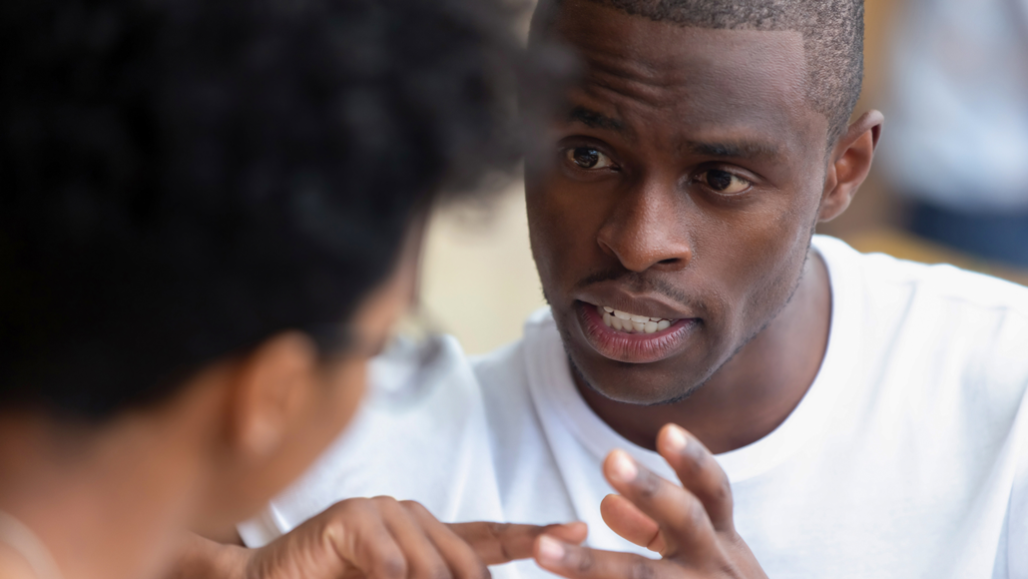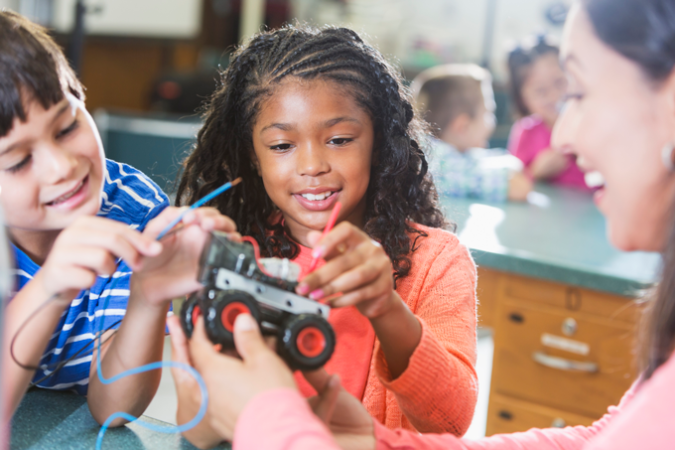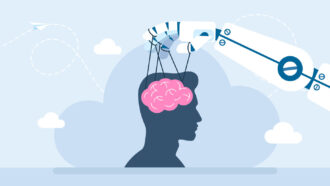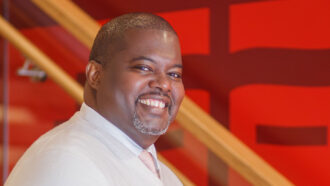Five tips for finding a great mentor
It will vary as you grow older, but age, maturity and knowledge will not be all they need

In theory, anyone can qualify as a mentor. What’s important is for that person to understand and coach students on how to achieve and succeed at whatever their particular goals might be.
fizkes/iStock/Getty Images Plus
Anyone can be a mentor. But not everyone can be a great one — at least not a great one for you. Only you will know who is likely to bring out the best in you. This person will need to have time for you, understand what makes you tick — and what ticks you off. That person must truly care about what happens to you, and show it in ways you can see. So here’s a check-list to help you find that coach to help you scale the heights.
Find someone who ‘hears’ you
Effective guidance requires listening closely, says Alberto Roca. He’s the executive director of DiverseScholar. This online program, based in Irvine, Calif., provides guidance and resources to students from under-represented groups. Mentors must learn what students want to achieve. They also need to realize that a student’s life and background might differ from their own. That information can then guide the mentor’s advice and actions.
Some students come to a mentor with clear ideas of what they need but may not be able to explain it clearly. Others may not even realize what areas they need to develop or strengthen. Listening carefully to what you say can help these coaches understand what you might need to succeed.
Sometimes a student might tell a mentor what they need “without even realizing that they are doing it,” observes Rachelle Oldmixon. She’s a psychologist in Los Angeles, Calif., and a medical writer. She described one instance where she was tutoring high school students. They were studying for a college entrance exam known as the SAT. One student had been struggling for weeks to get his ideas onto paper. At his last session after a sample test, he asked his mentor: “Why did I get a good score in the ‘supporting sentences’ section? I didn’t think I would.’” The student was referring to the sentences used to explain his reasoning or to provide data that justified his conclusions. The boy’s confusion gave Oldmixon a clue to his struggles. He had never been taught how to write an essay, she realized.
Careful listening can help mentoring relationships grow. Oldmixon says her own relationships with mentors as she was growing up were “a lot like friendship. My best mentors treated me as an equal. All of my ideas were valid.” Because of this, Oldmixon notes that the mentoring relationship may end up being a much closer one than what a student develops with a teacher.
Consider people who really love their work
Enthusiasm is contagious. People who love what they do often can make a compelling case why you might love that topic, too. These people also tend to love helping others see what makes their work so engaging. If they realize you find that field super-interesting, they often will be motivated to help you succeed in it.
Katherine Sebeck is a materials scientist for the U.S. Army in Michigan. Her eighth-grade physical-science teacher had a huge impact on sustaining her love of science. STEM is an acronym for science, technology, engineering and math. That teacher, Sebeck says, “was the first confident, exuberant woman in STEM I met.” Best of all, she recalls, “She really taught me to be joyful about science and to have fun with it.”
Eugene Day works at Seattle Children’s, a hospital center in Washington state. His seventh-grade algebra teacher helped him love math. That teacher helped him realize “that sometimes even when I feel confused, I’m doing things right.” Building self-confidence at such a critical time, Day believes, helped him to become the engineer he is today.
Don’t rule out non-experts
In elementary and middle school, mentors often are teachers. Chris Thompson says he got lucky that his fifth-grade teacher turned out to be a fantastic mentor. “He would always give praise in such a way that made you feel like you really achieved something,” Thompson recalls. But he says his teacher’s disappointment was even more effective. That made it clear he knew how much Thompson could achieve. That disappointment always spurred Thompson to try harder.

Today, Thompson is a developmental neuroscientist. He works at the Scripps Research Institute in La Jolla, Calif.
Mentors don’t always have to be adults. Older students can be mentors if they can listen and help a younger student with what they need. An older student who’s been in a science fair, for instance, might have just the right advice to help a younger student doing a science fair project for the first time.
Look for someone to help you be a better you
“Mentors should not impose their values on the mentees,” says Roca. A mentor, he notes, should not try to just make a student into a younger version of that coach. They should understand what you — the mentee — wants and then adjust their coaching to help you achieve your goals.
Don’t be afraid to reach out or ask for help
Many adults, including teachers and parents, can offer help in finding a mentor. “Some of the most effective [mentors] are those who are a bridge between a youth and another mentor,” says Jean Rhodes. She directs the Center for Evidence-Based Mentoring at the University of Massachusetts in Boston. Making that introduction might seem small. But if this fills a student’s needs, she notes, it’s a type of mentoring, too.
Lately, though, “we’ve moved toward encouraging students to find their own mentors,” Rhodes says. Her group works with middle-school, high-school and college students. It teaches them how to identify their own interests, identify mentors and reach out to those people.
Sometimes, all it takes is one email.
When Zarin Rahman was a senior at Brookings High School in South Dakota, seven years ago, she knew that she wanted to study how sleep affected teens at her school. She turned to the webpage of her hometown university, South Dakota State. “I found a professor whose area of expertise and interest matched my own,” she recalls. “I approached him via email and explained who I was and what I was interested in.” The professor replied immediately. And with that, a mentoring relationship was born.
Groups such as 4-H and the United Way also can help match up students and potential mentors. Both have national and regional mentoring programs. For girls and young women, there is the National Girls Collaborative Project and Girls Inc. The National Society of Black Engineers also offers programs focused on middle school and high school. Students may even find mentors through STEM professionals at local colleges.







